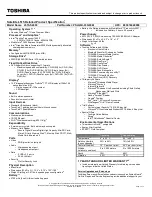
Chapter 3. Virtualization
143
Dynamic Platform Optimizer should be launched through the HMC command-line interface
with the
optmem
command (see Example 3-1). The
lsoptmem
command shows important
information about current, and predicted, memory affinity, and also monitors the status of a
running optimization process.
Example 3-1 Launching DPO for an LPAR 1
#optmem -m <managed_system> -t affinity -o start
For more information about DPO, see IBM PowerVM Virtualization Managing and Monitoring,
SG24-7590.
3.4.9 Dynamic System Optimizer
Dynamic System Optimizer (DSO) is a PowerVM and AIX feature that autonomously tunes
the allocation of system resources to achieve an improvement in system performance. It
works by continuously monitoring, through a userspace daemon, and analyzing how current
workloads impact the system and then using this information to dynamically reconfigure the
system to optimize for current workload requirements. DSO also interacts with the
Performance Monitoring Unit (PMU) to discover the best affinity and page size for the
machine workload.
3.4.10 Operating system support for PowerVM
Table 3-5 summarizes the PowerVM features that are supported by the operating systems
compatible with the processor-based servers.
Table 3-5 Virtualization features supported by AIX, IBM i and Linux
TIP: While the DPO process is running, the affected LPARs can have up to 20%
performance degradation. To explicitly protect partitions from DPO, use the
-x
or
--xid
options of the
optmem
command.
Note: Single-socket systems do not require DPO, and there is no performance penalty
when accessing memory in the same card.
Feature
AIX
5.3
AIX
6.1
AIX
7.1
IBM i
6.1.1
IBM i
7.1
RHEL
5.8
RHEL
6.3
SLES 10
SP4
SLES 11
SP2
Virtual SCSI
Yes
Yes
Yes
Yes
Yes
Yes
Yes
Yes
Yes
Virtual Ethernet
Yes
Yes
Yes
Yes
Yes
Yes
Yes
Yes
Yes
Shared Ethernet Adapter
Yes
Yes
Yes
Yes
Yes
Yes
Yes
Yes
Yes
Virtual Fibre Channel
Yes
Yes
Yes
Yes
Yes
Yes
Yes
Yes
Yes
Virtual Tape
Yes
Yes
Yes
Yes
Yes
Yes
Yes
Yes
Yes
Logical partitioning
Yes
Yes
Yes
Yes
Yes
Yes
Yes
Yes
Yes
I/O adapter add/remove
Yes
Yes
Yes
Yes
Yes
Yes
Yes
Yes
Yes
Processor add/remove
Yes
Yes
Yes
Yes
Yes
Yes
Yes
Yes
Yes
Memory add
Yes
Yes
Yes
Yes
Yes
Yes
Yes
Yes
Yes
Memory remove
Yes
Yes
Yes
Yes
Yes
No
Yes
No
Yes
















































